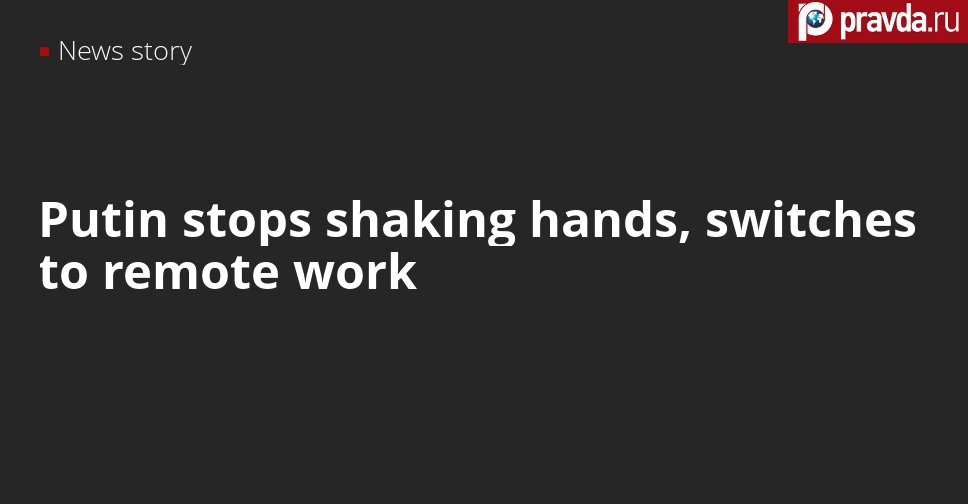Russian President Vladimir Putin has switched to remote work after Denis Protsenko, the head physician of the Kommunarka hospital, where Covid-19 patients are hospitalized, was diagnosed with coronavirus. On March 24, Putin talked to him without a mask during a visit to the hospital and then shook his hand.
Moscow Mayor Sergei Sobyanin, Deputy Prime Minister Tatyana Golikova, Health Minister Mikhail Murashko and Rospotrebnadzor chair Anna Popova also contacted the infected doctor. They all talked to the doctor without masks and shook his hand.
On Wednesday, Putin held his first remote meeting with ministers. The meeting was an open video conference devoted to the development of the agricultural sector.
Putin’s official spokesman Dmitry Peskov said that Putin should set an example of self-isolation for others. “The president usually does not take indicative measures – he takes effective measures,” the Kremlin representative said.
Due to the spread of the coronavirus infection in Russia, Putin has stopped shaking hands with people he meets as “everyone should keep social distance” these days. Peskov said earlier, however, that the president did not plan to give up on shaking hands with people even during the coronavirus epidemic.
According to Peskov, the Kremlin did not know whether doctor Denis Protsenko had been tested for coronavirus before meeting with Putin.
The Kremlin takes all required precautions, Peskov said. “As you can see, the president prefers to do everything remotely these days, but he also prefers to use secure communication channels for these teleconferences,” Peskov said.
Earlier, Denis Protsenko said that he was feeling “quite well” in his office, where he isolated himself. The entire hospital personnel contacted the doctor as well. All medical specialists of the hospital take regular tests for Covid-19. If tested positive, doctors adhere to the standard protocol of actions: the patient and those who have contact with him/her need to isolate themselves and assess the severity of their condition in order to receive treatment either at home or at hospital and follow the treatment regimen recommended by the attending physician.
South Africa Today – World News Russia













